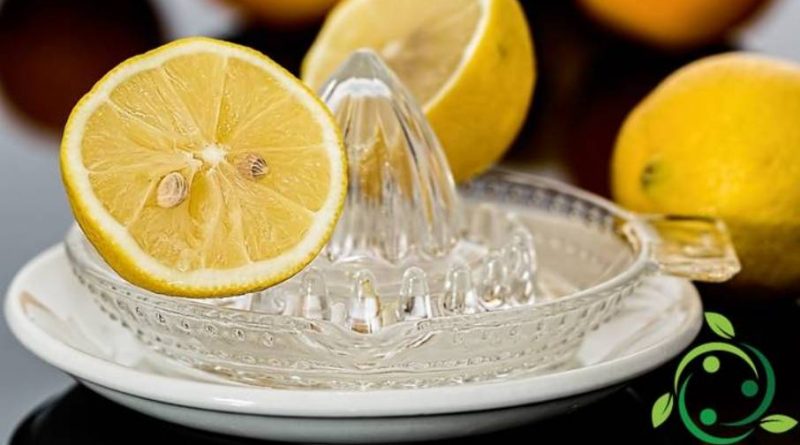Properties and benefits of lemon juice
Properties and benefits of lemon juice
Lemon (Citrus limon (L.) Osbeck) is a fruit tree of the Rutaceae family and is one of the most consumed citrus fruits in the world.
The reason for its high consumption lies in its remarkable food and health properties.
In lemon fruits the juice constitutes about 30% of their weight; this contains on average 6 – 8% citric acid, calcium and potassium citrate, mineral salts and trace elements, such as iron, phosphorus, manganese, copper and significant amounts of vitamins B1, B2 and B3, carotene, vitamin A, vitamin C ( up to 50 mg / 100 g of juice) and vitamin P.
Due to its particular composition lemon juice is above all a bactericide, an antiseptic and an anti-toxic.
In fact, lemon juice strengthens the immune system; the presence of vitamin C is excellent for fighting colds while the potassium contained in good quantities in it stimulates the function of the brain and nerves and helps to control the pressure. So let’s see the properties and benefits of lemon juice.
Contrary to what some think, lemon juice balances our pH, especially at the gastro-intestinal level and hinders acidification of our tissues and its dangerous consequences; the lemon, despite being a citrus and acidic, once it has reached the stomach, has a neutralizing effect on the acids. The usual intake of water and lemon therefore eliminates stomach acid phenomena which in the long run can lead to serious consequences.
Moreover, lemon juice, even when diluted with lukewarm water, helps to stimulate the gastrointestinal tract and to facilitate digestion, creating an alkaline environment favorable to the well-being of the whole organism. In addition, the vitamins contained in the lemon reduce toxins produced by the digestive system.
Another property associated with lemon juice is of a slimming nature; in fact, lemons are rich in pectin, which helps fight hunger and, moreover, it has been shown that people who maintain a more alkaline diet lose weight faster.
Combined with medium warm water, lemon juice stimulates intestinal peristalsis, facilitating the evacuation which, moreover, lemons are rich in minerals and vitamins and help to eliminate toxins through the intestine.
In addition, the vitamin contained in it helps to keep the skin clean by removing toxins from the blood, also facilitating a hepatic elimination process of toxins.
Also at the rheumatic level, the alkalizing properties of lemon juice help to avoid the formation of acid derivatives of the metabolism, favoring the elimination reactions.
The only contraindications can be related only to the need not to drink it pure in the case of dyspepsias, acidosis or gastric ulcers and in case of suffering from gingival inflammation or pyorrhoea; the intake of juice diluted with water, preferably warm, is always recommended.
Another recommendation, which is less superfluous than it seems. Make sure that the lemons have been produced with organic farming or in any case without the use of pesticides. Many products used for the elimination of harmful insects or mites of lemons are systemic, that is, they penetrate inside the fruit and the simple washing to eliminate them is not enough; for this reason, if you take lemon juice from lemons, produced with conventional agriculture, you seriously risk taking a good part of these highly toxic products. The lemons must be possibly ripe and not treated with waxes (which polish and protect the fruit in transport) in order to take full advantage of the precious properties of this fruit.

